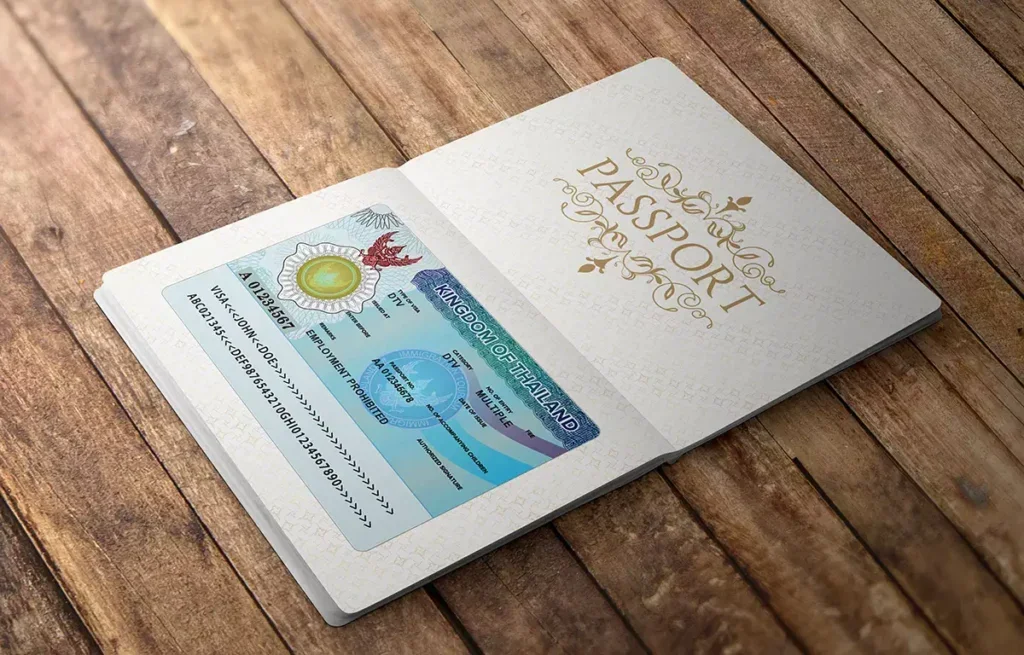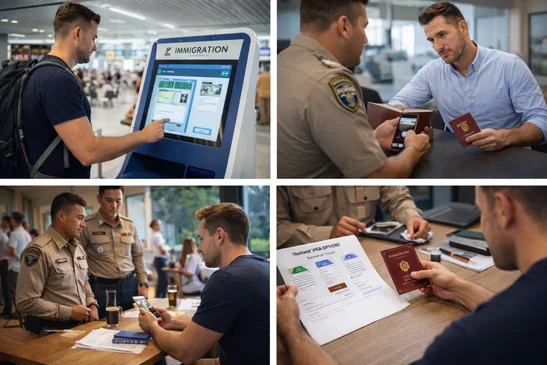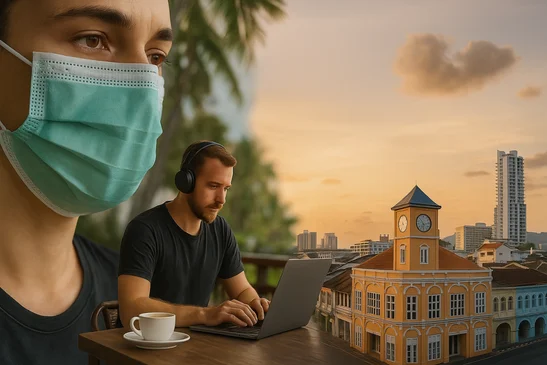Nowadays, working remotely is all the rage. And for good reason. It’s a tantalizing proposition for those who don’t need to be physically present to do their job and live at cold latitudes. Factor in the bonuses of a tropical island, a high standard of living, an intriguing and friendly culture, and an incredible food scene, and many will be mentally packing their bags. Until fairly recently, making this situation a reality in Phuket was not really possible, in part due to visa and work restrictions. However, last year saw the launch of the Destination Thailand Visa (DTV) creating a clear path for remote workers to set up shop in Phuket. Aimed at digital nomads, remote workers, and those wishing to take part in extended cultural or medical activities, this visa offers long-term flexibility and a hassle-free way to stay in the Land of Smiles. Here’s a breakdown of what it is, who it’s for, and how you can get one.
What Is the DTV Visa?

The DTV visa is Thailand’s answer to the growing digital nomad movement. It’s a five-year multiple-entry visa that allows you to stay in the country for a continuous 180-day stretch per entry, with an option to extend for an additional 180 days each time. That means you could basically spend a full year in Thailand per entry before needing to leave and re-enter.
This already makes it an attractive option, but to sweeten the deal you can legally work remotely for companies outside of Thailand without needing a work permit. Keep in mind that if you want to work for a Thai company, you’ll still need to go the traditional route and secure a work permit.
Another bonus is that your dependents (spouse or children under 20 years old) can accompany you, meaning only one person needs to actually qualify for the visa.
Who is Eligible?

Image by upklyak on Freepik
Not just anyone can get ahold of a DTV visa – there are specific requirements:
- You must be at least 20 years old
- You need financial documents proving that you have had at least THB 500,000 (or equivalent currency, not crypto) in your bank account for at least six months
Employees
- A Certificate of Employment or Employment Contract
- A letter from your employer confirming your remote work status and ongoing salary
- Personal tax return and recent payslips (optional but recommended)
Business Owners
- A Certificate of Incorporation
- Corporate tax return
- Cover letter
Freelancers
- A professional portfolio or evidence of freelance work (invoices, screenshots of profiles on platforms like Fiverr, LinkedIn, or personal websites)
Thai “Soft Power” Activities
- Proof of confirmation to attend cultural, educational, or professional development activities in Thailand for at least six months, as well as supporting documents such as a copy of the institution’s business registration
Keep in mind that supporting documents must be official and convince immigration officials that you are sincere – an email from a Muay Thai camp isn’t going to cut it. Remember, the DTV visa is categorized as a type of tourist visa, not to be confused with other types of business and family visas and it comes with certain limitations.
Applying for the DTV

Image by freepikTo apply for the DTV, you are required to do so from outside of Thailand. While it may be possible to apply in-person at a Thai embassy, simply applying online through the e-visa portal is best. The visa fee is THB 10,000, triple check your application and documents to avoid having to reapply.
One thing about the DTV visa is that you are at the whim of immigration officials because everyone’s situation is different and they discern who to issue it to. When this visa option was announced, the government itself said that not just anybody would be eligible, meaning they could deny your application even if you feel you meet the criteria.



















